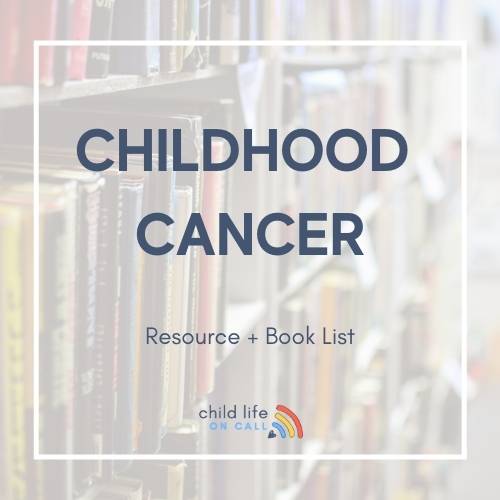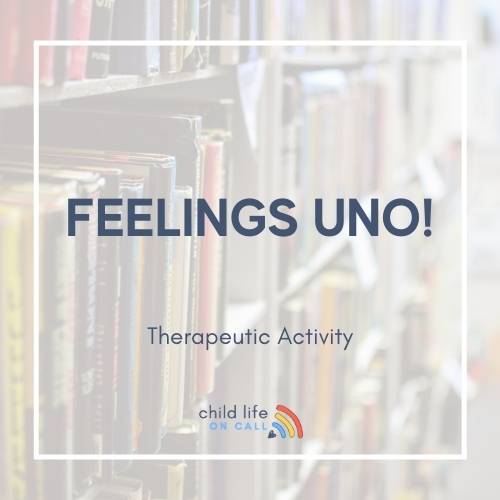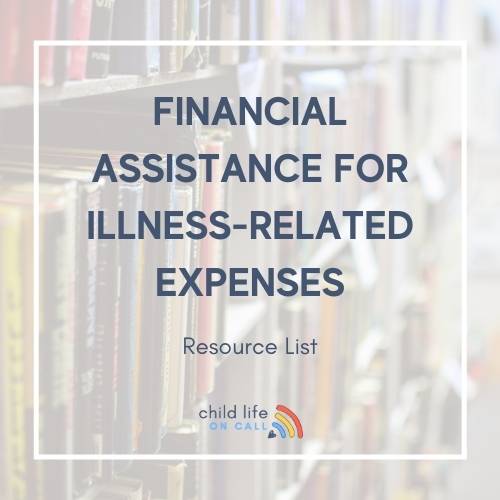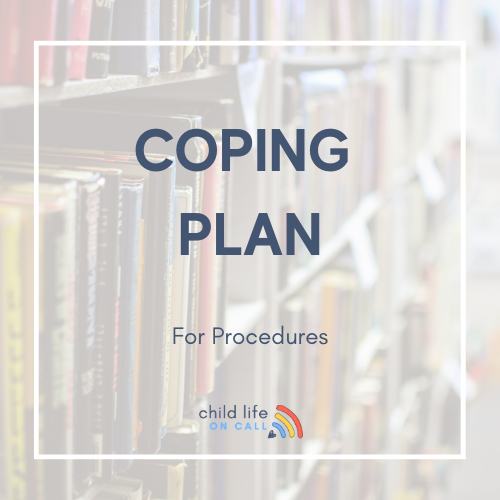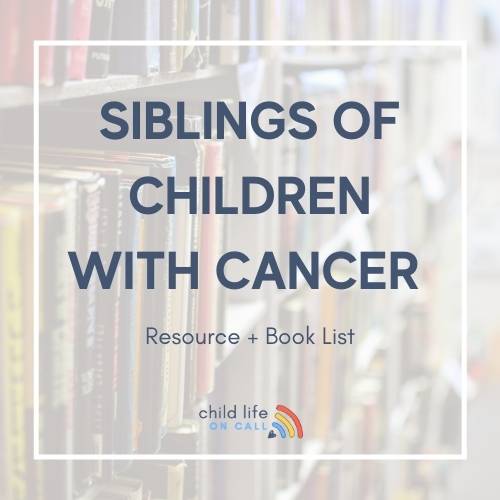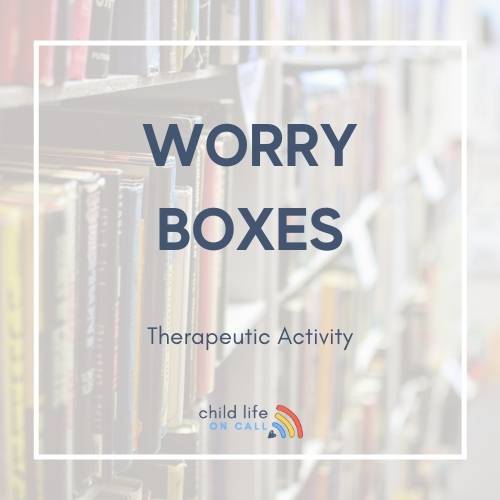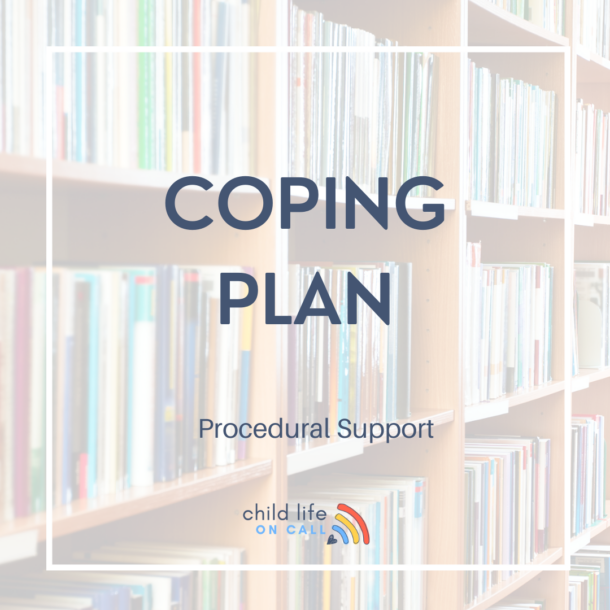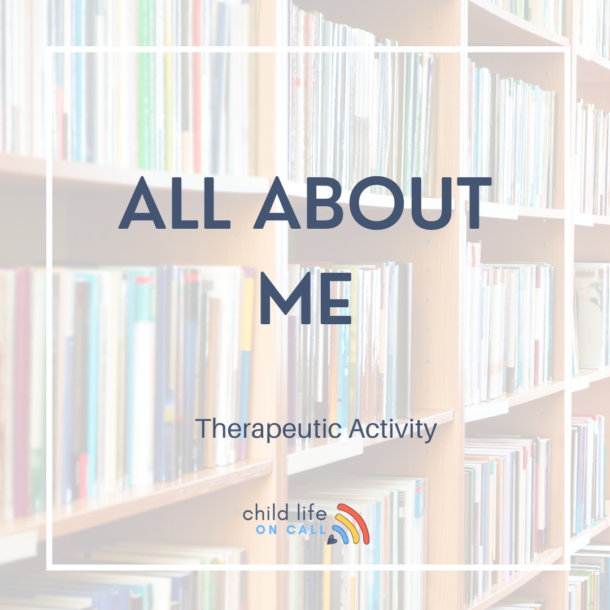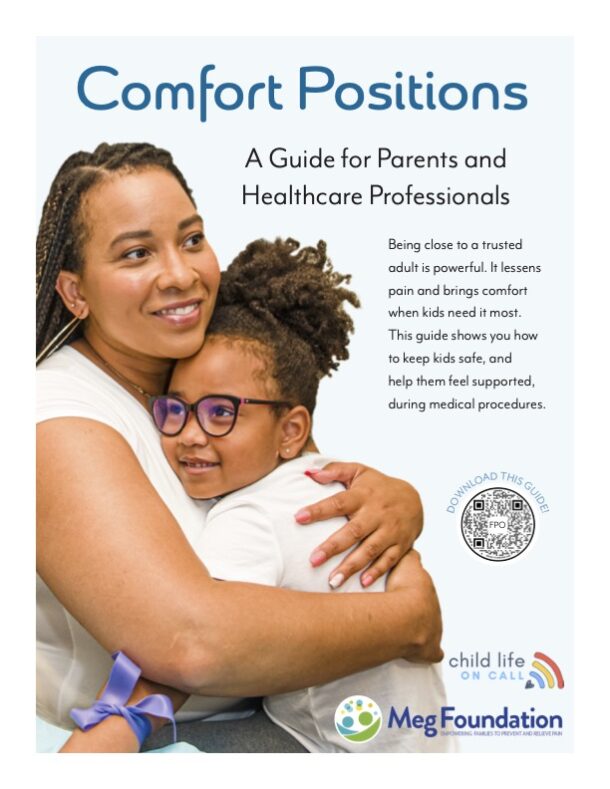"I feel like I owe it to him to explore other avenues. Acceptance doesn’t mean giving up; it means continuing to learn and adapt."- Lexi In this episode of Child Life On Call, Katie Taylor speaks with Lexi, a devoted mother of two, about her family's journey with...
Episode 179 | Laura’s Story-Why Therapeutic Play is Essential During Healthcare Experiences
Podcast Show Notes
If you’re feeling frustrated and helpless as you watch your child struggle to process their emotions during healthcare experiences, despite your best efforts to comfort and support them, then you are not alone!
Play is so important, even in the emergency room.
My special guest is Laura Sufka
Meet Laura Sufka, a passionate Child Life Specialist with over 23 years of experience enriching the lives of children and families navigating healthcare experiences. Laura’s expertise lies in leveraging the power of therapeutic play to support children’s emotional well-being. As a self-proclaimed ‘dabbler’, Laura’s multifaceted approach has led her to work across various healthcare settings. Now the founder and owner of Children’s Coping Connection, a private practice, she offers resources and in-home visits to those in need. Laura’s philosophy centers on empowering children through play. Whether it’s turning a hospital visit into a more positive experience or helping a child process a profound life event, Laura’s commitment to children’s mental health is unwavering.
This is Laura Sufka’s story:
Being a lifelong learner, Laura Suska has always been open to exploring new areas and techniques in her work. From working in different facilities to founding her own private practice, she has continually strived to serve children in the best way possible. Through her journey, she discovered the power of therapeutic play and its efficacy in aiding children’s emotional well-being. Using play as a process rather than a means to an end, Laura has been helping children cope with life’s challenges in their own unique ways. She considers play as a tool for children to communicate their feelings and experiences. To ensure this, she focuses on providing a safe space where children can freely express themselves without any set goals or expectations. This way, she turns the table around, letting the children take the lead and allowing them to process their feelings at their own pace.
In this episode, you will be able to:
- Absorb knowledge about the compelling benefits of therapeutic play in fostering children’s emotional health.
- Differentiate between the often-confused arenas of play therapy and therapeutic play.
- Delve into Laura Sufka’s impressive experience and skills in the realm of therapeutic play.
- Appreciate the subtle yet powerful language of play for children’s emotional processing.
- Recognize the crucial work of Child Life specialists in providing psychological and emotional support to children during their healthcare journeys.
The resources mentioned in this episode are:
- Connect with Laura Sufka on Instagram to stay updated on her work and receive valuable resources and support.
- If you are in Minnesota and in need of a child life specialist, consider reaching out to Coping Connection for in-home visits or other services.
- Explore the Child Life On Call website to find resources on therapeutic play and how it can benefit children going through challenging life events.
- If you are a parent or professional in the field of healthcare, consider listening to the Child Life On Call podcast for empowering stories and expert episodes.
- Follow Child Life On Call on social media to join a supportive community of parents and professionals navigating healthcare experiences with children.
Whether you are a parent or professional, we want you to join our community. Sign up for our newsletter here.
Parents, download our free parent starter kit.
When you download our starter kit, you’ll learn how to:
- Give medicine to your child without it becoming a wrestling match
- Prepare your child (and yourself) for a shot so they can feel less anxious
- Create and use a coping plan for any medical appointment or procedure
The first sign of sniffles, or worse, shouldn’t send you into a tailspin. Feel confident in your role as a parent and advocate, no matter what medical situation you’re facing.
Child life specialists, get affordable PDUs on-demand here.
Shop for your CLOC gear here.
Episode Transcript
00:00:00
You’re listening to episode 179, Laura’s Story why therapeutic play is essential for kids going through healthcare experiences. Hello, my friends. Welcome to child life on call. This podcast is a safe place for parents to share their stories about what it’s like to have a child that has a medical experience, diagnosis, disease, and everything in between. We know there’s power in sharing stories, and that power multiplies when you can listen to other parents who have walked a similar path to yours.
00:00:34
Giving and getting advice is great, but hearing how another parent navigates the complexities and nuances of health care is even better. As a child life specialist, my role is to support, validate, and provide emotionally safe spaces for kids and their families, and I am so honored to be on this journey with you. In addition to parent stories, we sprinkle in some expert episodes every now and again that have content for both parents and professionals in the field of healthcare, all with the mission to empower parents to be confident advocates and partners with the care team during healthcare experiences. We’re so glad you’re here. Hello, my friends.
00:01:11
This episode is going to feel like a breath of fresh air because Laura Sufka has been a Child Life On Call specialist for many years and speaks so eloquently about the essential nature of play for kids. Not just with the goal of learning or teaching them something, but simply play and the power that it has. She works both in, has worked in a clinical setting and now is a private practice Child Life On Call specialist and is so well connected in her region and just gets to work with kids and families after they have left the hospital. What she does is so essential, and today she’s going to give us some key insights into what her goals are, how she works with families, and why what she does is so important. All right, so let’s get started with our conversation with Laura Sufka.
00:02:13
I’m sitting here in my office in Texas, and she’s way up there in Minnesota, right? Yes, Minnesota. Minnesota. And we have been in each other’s lives via social media and Instagram and now the Child Life On Call for a long time. And so it’s very cool to get to talk with you.
00:02:35
And I know on a personal level, your positivity, your support, the little messages you send me mean more than I could ever say. So I’m just so excited to finally get to know you via the virtual world. I’m super excited about today, too. I feel like it’s so weird to not really ever meet somebody yet feel like you can just add a little joy to somebody’s day or just root them on and just provide a little encouragement. So that’s always nice.
00:03:06
Especially, I know you have littler ones than I do. And so I’m like, oh, yeah, I’ve been there, done that, and you’re rocking it every day. We’re doing our very best. Yeah, you were specifically hilarious when I was going through the fish issue, that we just became a fish family, and it was already drama and tears before the fish were even in the tank. Okay.
00:03:28
And I was like, yeah, you’re done. You’re fine with one. Just be done with that, and it’s fine. And you’re giving so much to your Child Life On Call, and fish don’t need to be a part of that. Your advice was so good, too, because I was asking you about a snail to clean the tank, and you’re like, whatever new comes to the fish bowl is from their money.
00:03:51
Yes, totally. Why don’t you just take some time introducing yourself, who you are, where you live a little bit about your work and your life and all that good stuff? So, I’m Laura Sufka. I have been a Child Life On Call specialist for 23 years, which is just phenomenal and amazing. When I first started my career, I’ve always worked in Minnesota, but I’ve worked at different facilities, different Child Life On Call’s hospitals, different community based hospitals.
00:04:19
I am a dabbler, and I love to keep learning. I’m a lifelong learner. And so I’m not specifically, like, moving jobs. I’m just moving within these amazing Child Life On Call’s hospitals that are growing. When I started 23 years ago, child life just it was not that big.
00:04:37
And now a lot of departments are 2030, 40, 50 Child Life On Call specialists. And so I started when there was only, like, five Child Life On Call specialists in a department, and we were doing our best in reaching so many families. And I’ve dabbled in, inpatient, outpatient. I love emergency room work. I love the unexpected, not really knowing who’s coming through the door, how they’re coming through the door, and then they leave feeling so empowered and just feel so proud of themselves.
00:05:10
And then that relationship with their parent and going through something together that was hard, and knowing that they could do that and specifically with their trusted adult is just honestly, a little mind blowing to me that we get to be a part of that. So that’s one of my true loves. Too bad er work isn’t nine to two. It is not, honestly, but it worked for me. So as along in this journey of dabbling in child life in different areas, I also have three Child Life On Call.
00:05:46
My oldest, Ayla, who is 14, my middle Hudson, who is 13, and then Lincoln, who’s nine. And so, throughout my child life journey, we have adjusted my child life schedule to work around their life schedule. And so I’ve been extremely privileged to continue to do child life work, but it looks very different every single year. That means a lot of night and weekends, but I had the great honor of doing that and still being a stay at home mom. So I got the best of both worlds, I think.
00:06:20
I have a husband, Eric, who is the logical human in our life, where I need one. Yeah. All heart, man. I’m all heart, but he’s all logic and we’re just like a really good team together, and it works well for us. And also, I think honestly, it worked well for me continuously staying in child life even though I was a stay at home mom, because logistically, he realized I’m doing exactly what I’m supposed to be doing.
00:06:51
And I was having a little bit of an identity cris after having Child Life On Call. I was like, no, I’m a child life specialist. This is what I’ve done my whole life. I knew in 10th grade I wanted to be a child life specialist because I started volunteering at a local Child Life On Call’s hospital and saw child life specialists in a playroom, doing medical play. And I was like, yeah, that’s it right there.
00:07:16
That’s what I want to do. And so I’ve known for a really long time I wanted to do this. And so I’ve been able to. You’re accurately describing when people say it’s not a job, it’s a calling. And that’s what you’re doing.
00:07:31
Absolutely. Currently, what I do is I am the founder and owner of Child Life On Call’s Coping Connection. So I own my own private practice and I do lots of contract work with different Child Life On Call’s hospitals who don’t have a child life specialist in a certain area. And I do a lot of grief and loss work with different hospice or schools, community based settings who are really looking for that support on how to explain death or a really traumatic event to their community or to parents who are really looking for those words that they need to support their Child Life On Call. Well, yeah, let’s start there.
00:08:11
How do families find you or get in touch with you? Part of working in the same state for a really long time. And I don’t know what it’s like in Texas. I only know what it’s like in Minnesota. But we all know each other, childlike specialists.
00:08:29
We really know who each other are. Even if somebody lives in Minnesota, that’s 4 hours away from me, I know who their childlike specialist is because we’ve done so much transfer to different hospitals, especially, I think, maybe, honestly, maybe working in the emergency room. I just know where these kids and families are coming from when they end up with us in these major Child Life On Call’s hospitals. And so I have just this wonderful community who knows my name and also knows that I do in home child life specialist work. And that’s a really big piece.
00:09:06
So it’s a lot of child life networking that I’ve done over the years and my dabbling that I’ve continue with and then also word of mouth, I’m on Instagram. Not like you’re on Instagram, I’m just dabbling in Instagram. Well, you’re doing a great job, no doubt about that. I think we grow up hearing it’s not what you do, it’s who you know. And sometimes that really helps us in our career, especially when you stay in one spot for a long time and it sounds like when child life specialists are working with families, they can say, hey, by the way, you can go talk with my friend over at Child Life On Call.
00:09:50
Is that right? What it’s called? Child Life On Call’s coping connection. Child Life On Call’s coping connection. And she can get you set up with resources or in home visits or whatever that may be.
00:10:00
Yeah, it’s interesting because I had this AHA moment about maybe six months ago and as a Dabbler, I’ve always felt that that is a little bit like, Laura, why can’t you just stick with one thing? What’s so hard about that? And the reality is, one day I was like, no, that was like preparation for me, being in private practice. I just had no idea that that’s where I was leading. You just don’t know.
00:10:33
Right. Yeah. I feel I’m also a dabbler or a juggler or that kind of thing. And it really feels like a gift sometimes that you can be done with something and move on to the next project or challenge yourself. And now looking back on, I’ve only got 13 years of experience, but so grateful.
00:10:56
I’ve bounced around from Hematology oncology to NICU to Er to Radiology. It’s such a gift to be able to look back and have had experiences in each corner of the hospital. Yeah, absolutely. I couldn’t agree with you more. Well, one of the topics I wanted to pick your brain on for families who are listening today is the way you incorporate therapeutic play.
00:11:23
And we throw around the term therapeutic play. Like people know what we’re talking about. Right. And I think sometimes we can be compared to play therapists. And we are always quick to say we are not play therapists.
00:11:35
We are certified Child Life On Call specialists. And it is a little bit of a different discipline. Although play is multifaceted and we both clinicians use it in different ways. But how did you gravitate towards therapeutic play? And then let’s scratch that.
00:11:55
Let’s start with the question, can you explain what therapeutic play is for people who are listening? So to explain what therapeutic play is, is really hard. Like you said, it’s super hard. Also too, as a clinician to explain it in one way and parents is another. So I’m going to go with like, how do I talk about it with these families that I’m working with?
00:12:15
Because they’re like, oh, you’re a play therapist. No, I’m actually not a play therapist. I use therapeutic play as my modality. And that’s different because when your child is working with me or I’m working with your child, I’m not looking to set any goal. I’m not looking to direct their play in any way.
00:12:33
I’m allowing them to use play as a process and really use it as a space for them to process whatever is going on in their life. So challenging life events, big feelings, a new baby in the house. I’m allowing this play to just be and to observe with my eyes what the child is doing. And so I’m not interrupting their play. In a sense, I may be clarifying it, clearing up misconceptions, listening to them when they say, I don’t want to do that anymore.
00:13:09
I’m like, yeah, let’s not do that anymore. That’s great. Okay, sweet. What do you want to do instead of maybe holding them in that space and pushing them a little bit? That is not my job.
00:13:22
That is not my role. That is not what therapeutic play is. I love that it takes some of the pressure off, too, I think, for parents to start modeling that as they play with their kids, too. Right. There always doesn’t have to be an end game.
00:13:38
And I know as an Er childlike specialist especially, we don’t really get that kind of liberty to have therapeutic play interventions. So it makes sense when you have these in home visits repeatedly that you really get to use that intervention. And what would you say some of the goals are for kids when they interact in therapeutic play? What do you hope at the end of that therapeutic play session that they walk away with? So the first thing, I would actually go back to an emergency room example because I actually do believe that play is so important, even in the emergency room.
00:14:19
And here is why. I believe when I walk in with playdoh in my hand or bubbles in my hand or a sticker chart or something that I’m saying to that child, I’m on your team, I’m speaking your language, and I’m ready to support you, and I don’t need to ask you any questions about anything. And when you’re ready to engage with me, then we’ll do it. Yeah. Wow.
00:14:49
Yeah. What a calming opener. There’s no judgment from the beginning. What’s the word I’m looking for?
00:15:05
I don’t know. There’s no underlying expectation for when it will be the time. The time is to play. Yeah. And when I’m talking to parents about that, I just use the example of, like, if you were going to therapy or if you were going to see a trusted adult in your life, I would never tell you that you have 1 hour and you better get fixed.
00:15:29
Whatever you need fixed by the end of this hour, and then we’re moving on. And so I don’t think we would want to ask a child to do that. And by interrupting their play or having a goal, or even if I’m trying to loosely have a goal in my mind, I think it’s going to really interrupt the process honestly. And honestly, we know Child Life On Call are going to interrupt you anyway. They’re going to kick down your process.
00:15:58
So you might as well not go in anyway with an idea, because they are so gracious in how they allow you in their space and so amazing that they’ll verbalize you or show you that they’re not wanting to do that specific thing. And they will give you grace by saying, hey, I don’t want to do that anymore. Or they’ll just pick up their body and move to a different space. Yeah, I think that’s such a true statement is kids are not afraid to tell us what or how they feel. We compassionately and lovingly, but very confidently call our daughter Baby Dragon at times because she will tell us exactly how she feels about something, which is such a superpower that we often lose as we get older.
00:16:49
The other things is when you’re watching and observing and playing next to a child who’s doing therapeutic play, I would say one of the benefits that you see not necessarily a goal, but it’s just the benefit of a space to process, the benefit of a space to be in charge, the benefit of a space to own with an adult. What you’re doing? Yes, absolutely. And I think that says so much. I think we’ve all heard it at one point in our career, like, wow, they’re just so happy when they leave your office, or they’re just so happy after they engage with you.
00:17:29
And I just kind of own that and be like, Absolutely. They were given so much choice in this space and allowed to process any way that they needed to, and it was like going to the spa for them. They absolutely loved it. Or it was like taking a nap. Whatever that parent has told me in the past has been a really big benefit to them.
00:17:51
I try to compare it because it’s really an AHA moment for that parent. They’re like, oh, right, of course that would make them feel happier, or of course that would help regulate them. It all makes sense to them. I was finishing a workout today, and I do like the peloton app and it’s $10 a month. So cool.
00:18:14
And this trainer said, if you came up, if you came and you showed up today and you did the best that you could do, you gave your body exactly what it needed. And that’s so true with it sounds like when you’re offering these sessions, right, you gave that child exactly what their body was craving because you allowed the space for it to happen. Yeah. And play is I mean, it is a basic need for these kids. It is one step little bit lower than like, food and shelter and safe.
00:18:47
And that’s why we see kids, like, when parents are like, oh, they’re always fighting with their figurines, or they’re always playing house. And I’m always so intrigued, like, oh, tell me more. What do you mean by that? And then kind of breaking it down for the parents. Because it’s like once they see it, once they see what those kids are doing, they’re like, oh, my gosh, that totally makes sense.
00:19:11
Of course this has been going on this week, or this has been going on in their life, and no wonder they’re doing that. That completely makes sense. And that’s why it’s so important when a child is in cris or a family is in cris, that they really think about play, therapeutic play, utilizing play hands on. That’s how kids are going to process. They might not talk to you about it.
00:19:34
I mean, how scary to tell somebody exactly how you’re feeling. We as adults can’t even do that sometime. So we definitely cannot ask kids to do that, but we can ask them to play or we can provide a space in the home that gives them an opportunity to process whatever’s going on in their life. How would you tell parents, too, if they were to kind of try this out with their kids and they’re listening to this and say, that sounds really nice. What’s a great way to start opening up the door.
00:20:03
And there’s so many ages that we could go to, but let’s start with like a five year old boy or a five year old girl or just somewhere in that age. What are some of the go to things you would get started if you had no information and they were just kind of going to show up to your office? What would you have out? I am big into large gross motor because I don’t think kids get enough of it, right? So if I was doing like a feelings check in, I’d have giant pictures of feeling faces on the wall and then I’d have a bunch of cushballs.
00:20:36
And that’s how we would check in for the day. I wouldn’t ask them to sit, I wouldn’t ask them to come to my office space. I would maybe do this outside and I would say, how was pizza today at lunch? Or how was school lunch today? And then they’d chuck the cushball at whatever feeling that was.
00:20:53
And then, how was math today? Chucking the ball at whatever. And then how did it feel when you realized mom wasn’t picking you up from school today, even though she usually does that? And then they would chuck it at worried or frustrated or sad or confused or whatever that is. So it’s really about checking in again.
00:21:18
Nobody wants to tell people how they’re feeling, even kids sometimes, because sometimes they don’t have the words. And so to put them on the spot like that, but I can get them to move their body so much easier when we’re playing and engaging together to express ourselves. And another thing I love to do is water balloons, sidewalk chalk, like we’re drawing our faces. I have the great honor of having Hunching bags in my office, so I get to do that with them. And we just go out there and there’s this idea that everything has to be intentional.
00:21:55
And I think a lot of it is the intention of a parent comes from our life is very busy and my Child Life On Call are over scheduled, so it’s hard when parents are asking me, what can I do? The reality of what they can do is slow down a little bit and make some time for play. And play is connection. And it doesn’t have to be all day long. It can be 15 minutes or I like a shameless little plug of Laura from Mighty and Bright, who I absolutely love.
00:22:32
Not shamefully. We plug her whenever we can. Her stuff is incredible. So, Lauraallschler@mightyandbrightco.com, you’re welcome. Yeah, totally.
00:22:43
But those special time cards and honestly, families who are in crisis, even I don’t even really like to have huge in depth conversations with parents because they’ll be like, oh, what did you do in session today? What could I bring home? And honestly, I just give them a couple of these cards because they can’t come up with stuff that’s so challenging for them to even think of one more thing in their day. But if I give them a couple of cards, I think it kind of gets their wheels turning a little bit and then they’re like, oh, yeah, I can do that, I can do that. And then I always remind them, please set the timer for 15 minutes.
00:23:17
That 15 minutes is for you, so you don’t have to worry about, are you playing too long and you’re going to miss your next webinar? Are you playing too long and you’re going to miss your next zoom call? It’s 15 minutes for you and then it’s the 15 minutes for the child. So they know when their time is done. They know they can watch it if it’s a visual timer.
00:23:38
And then it’s a huge impact of connection. That’s all done through play. I’m sure you have a million answers to this question, but what are some of the things you’ve learned from kids as you’ve watched them play over the years? Play is so essential. It is incredibly essential to every human being.
00:24:01
And if you really, truly want to connect with a child or a teenager, you need to play with them. It is your way to say, I’m here for you, I’m going to fight for you, I’m going to support you. Play is that modality. That is it is a gateway into them. And I don’t take that lightly at all.
00:24:25
Like, I am absolutely honored to be walking beside these Child Life On Call and these families. But what I’ve really learned is if I want to really know their story, I have to be willing to play. There’s no other way. There just isn’t. It’s how they communicate, it’s how they express themselves and the stories that I have heard because I have sat and played and listened, like, really listened nonverbally and watched them play.
00:25:00
I mean, these stories are amazing that these Child Life On Call go through.
00:25:07
That’S so impactful. The other thing that’s built and surfaces during play is trust. And that’s really what you’re getting. And we as child life specialists try to tell as many health care providers as possible. Like, you spend your first three minutes playing with your patient.
00:25:28
I don’t care if you’re an MRI tech or a neurosurgeon, you can build this trusting relationship that will carry you throughout the length of your relationship with this child. Oh, absolutely. It’s not big. It’s literally like acknowledging that you see that the child has a Spider Man shirt on. That is playful.
00:25:53
That is playful, right? I think it’s hard. Like you said, it’s really hard for people who have not dug into this work of play. It’s mind blowing. If we tell them, oh, you just like, three minutes, that’s it, I promise.
00:26:07
They’ll be like, no way. It’s not going to be three minutes. That’s not how anything works in this world. But it does. It really does.
00:26:14
And it’s like as simple as, like, take your glove, put your gloves on, grab an extra glove and blow it up and make it into whatever animal or a hand face. And that’s playful. Literally, you’re telling the child, I get you, I’m speaking your language. We can do this together. I’m going to work hard on building this trusting relationship, but I’m going to attempt.
00:26:37
I’m going to try. It’s just like planting a seed of trust, of like, I know you don’t have to trust me yet. It’s fine. You don’t know me, I’m a complete stranger, but I’m just going to plant this seed, and if you want to engage with me, that’s awesome. If you don’t, that’s fine too.
00:26:54
It’s so true. It’s like if that example you gave the provider, every time they walked into the room, did this hand balloon or whatever it looks like this glove balloon. The second time they came back, they did it the third time they came back. Every time they came back, eventually they’re going to crack the door and the kid’s going to say, Come in, come in. And what kid does that to a provider?
00:27:15
And it’s the reason why child life. We knock on the door and kids are like, yeah, she can come, she’s fine. And it’s not because we’ve put magic fairy potion on them. It’s because we play. Yeah, I mean, we might a little.
00:27:31
You’re not supposed to talk about it. Okay, that’s the next episode is the recipe for Child Life On Call fairy dust station. We’re going to just give it away. You’re just willing to just give that away? I guess we’ll see.
00:27:47
I have to tell you one more thing about play because I think it’s really important for Child Life On Call students. When I was a student 23 years ago, I read all the Child Life On Call books or the ones that were available 23 years ago, but I had the great opportunity five years ago to develop a Child Life On Call course. So therapeutic play for child life professionals. And that is when it was so reaffirming for me. You read those books and I won’t tell students, but you’ll read them and then you won’t read them again for a really long time, but nobody needs to know that.
00:28:26
And then you reread them and you’re like, oh, well, of course, yes. And that’s what happened. I started rereading all of these articles and all of this evidence based and all these books, and I literally was like, oh my gosh. This is why therapeutic play is so important. This is why play is so important.
00:28:46
This is why we have to keep this centered in our profession. Because if you truly want to make a connection with a child or a teen, you have to play first. Yeah, I think so. Often we can get bogged down and say the priority is that they know this intervention, why that may be true, and it may make the care team’s job a lot easier. Is it the first and foremost play most essential thing to building that relationship?
00:29:17
It’s good to ask those questions. Yeah, absolutely. And in the Er, I would always play first walking in these rooms. Unless of course, but even during a trauma, I always had playdoh in my pocket. I always had some little trinket that I had to literally show them, like, I’m on your team.
00:29:36
A squishy ball or something. You can always find a way to play. Or even if you can’t bring something in, talk about it. Playing verbally is saying, what’s your favorite movie? Right?
00:29:49
That’s another way to say, let’s play. Let’s play. In our conversation. It’s I spy. Everybody knows I spy.
00:29:58
The simple things you don’t even need to blow up a glove balloon for. Well, Laura, I have loved talking with you and it just feels so good to be reaffirmed about how essential play is. Not only as we navigate our role in the hospital, but just for parents to kind of lower their expectations when it comes to a play outcome or it comes to a purpose. Sometimes just play and being there is enough. Yeah, absolutely.
00:30:32
You can come back anytime you want. In fact, I’ll hold you to that. We’ll do another topic, but if people want to follow you on your wonderful social media or connect with you, or maybe they live in Minnesota and want to hear about your services, how can they do that? Yeah. So my website is Laurasufka, and you can find me on Instagram at Child Life On Call’s copingconnection.
00:30:57
Great. Well, thank you so much for being here. Thank you so much.
00:31:03
Thank you all so much for listening to Child Life On Call. If you head to our website, Child Life On Calloncall.com, you’re going to find all sorts of stuff there for parents, professionals, healthcare providers, Child Life On Call specialists. No matter who you are, actually, when you just go to our homepage, it’ll tell you. It’ll help you direct to exactly where you need to go on that you’ll find opportunities. And PDUs for Child Life On Call specialists parents, we’ve got a starter kit for you.
00:31:28
And clinicians. We even have a clinician course, which. Teaches you how to be a confident and capable caregiver in pediatrics. We’re so grateful that you’re here. Please DM us on instagram.
00:31:40
And like I mentioned, when you rate and review this podcast, it helps other families be able to find us. So let’s keep doing that, and I will see you again here next week.
You Might Also Like…
223: A son with Burkitt lymphoma at 8 year’s old – Reina’s Story
"My immediate thought was I'm going to lose my son. That was where my head went immediately." - Reina Introduction In this episode of Child Life On Call, Katie Taylor talks with Reina, a devoted mother from Nashville, Tennessee. Reina shares her heartfelt journey of...
223: [6 minutes] The Child Life On Call App is Now SupportSpot!
Episode Description: In this special impromptu episode, Katie Taylor, Certified Child Life Specialist and CEO of Child Life On Call, shares some exciting news! We're rebranding our beloved Child Life On Call app to SupportSpot. Tune in to hear why we made this change...

